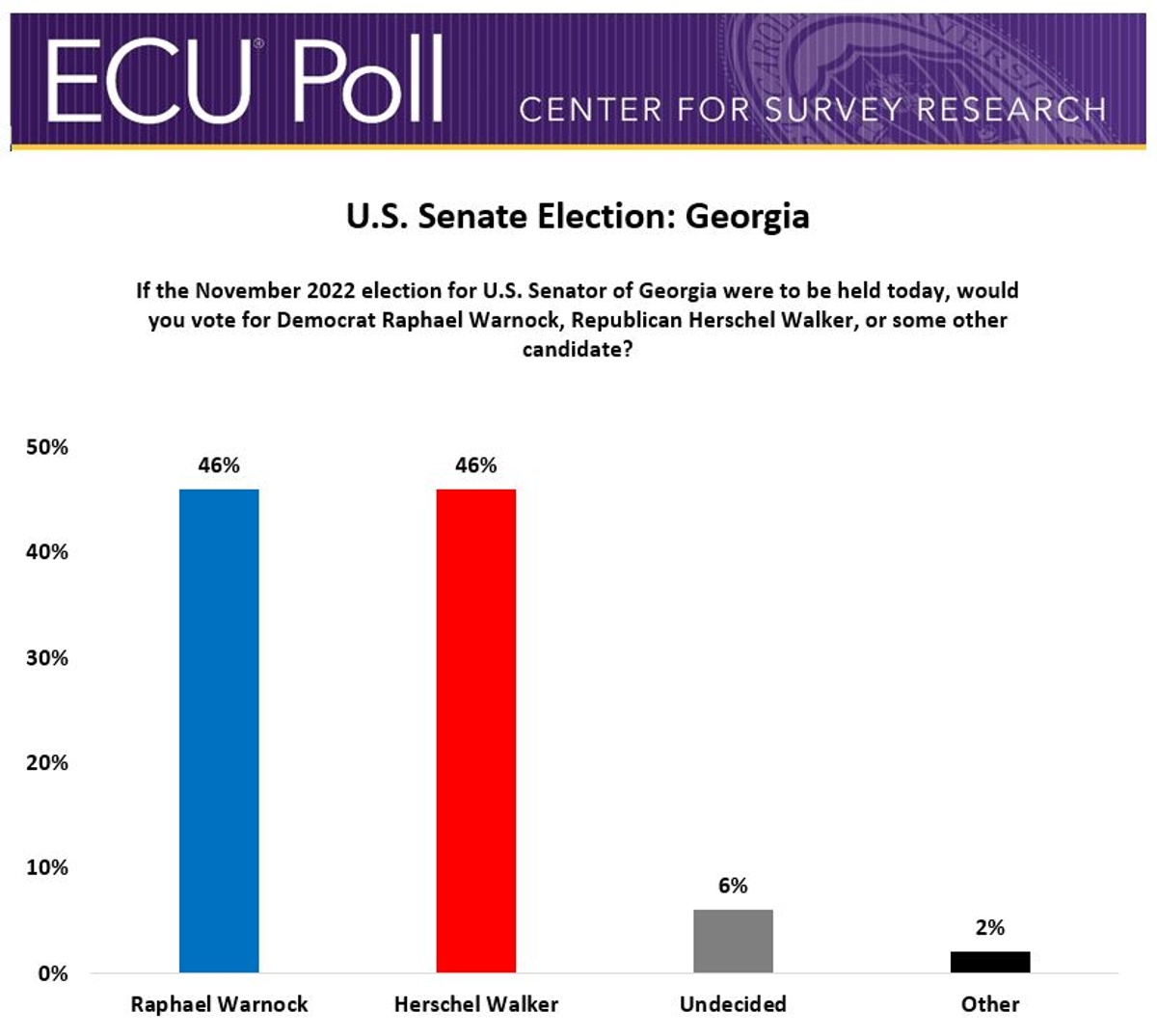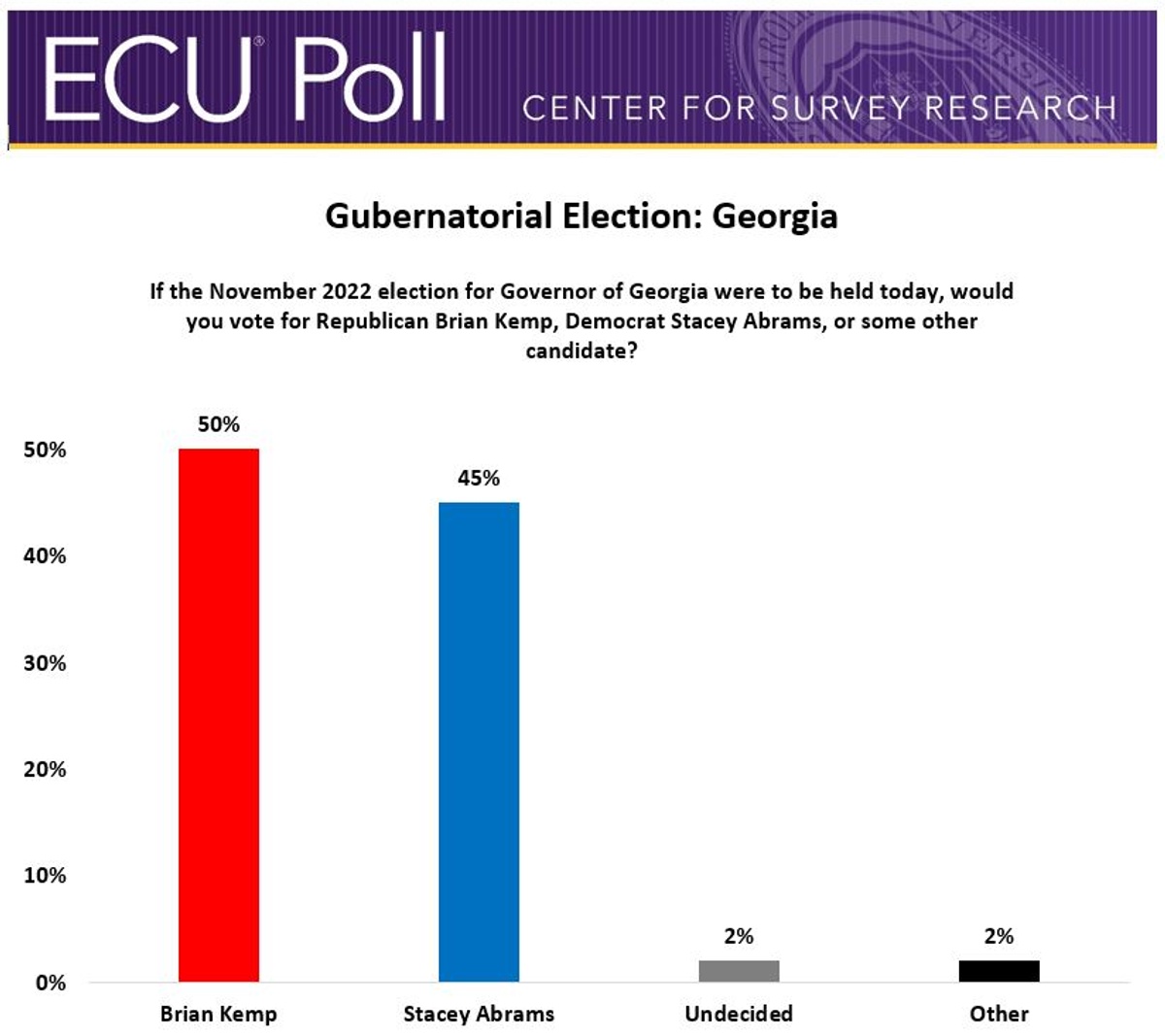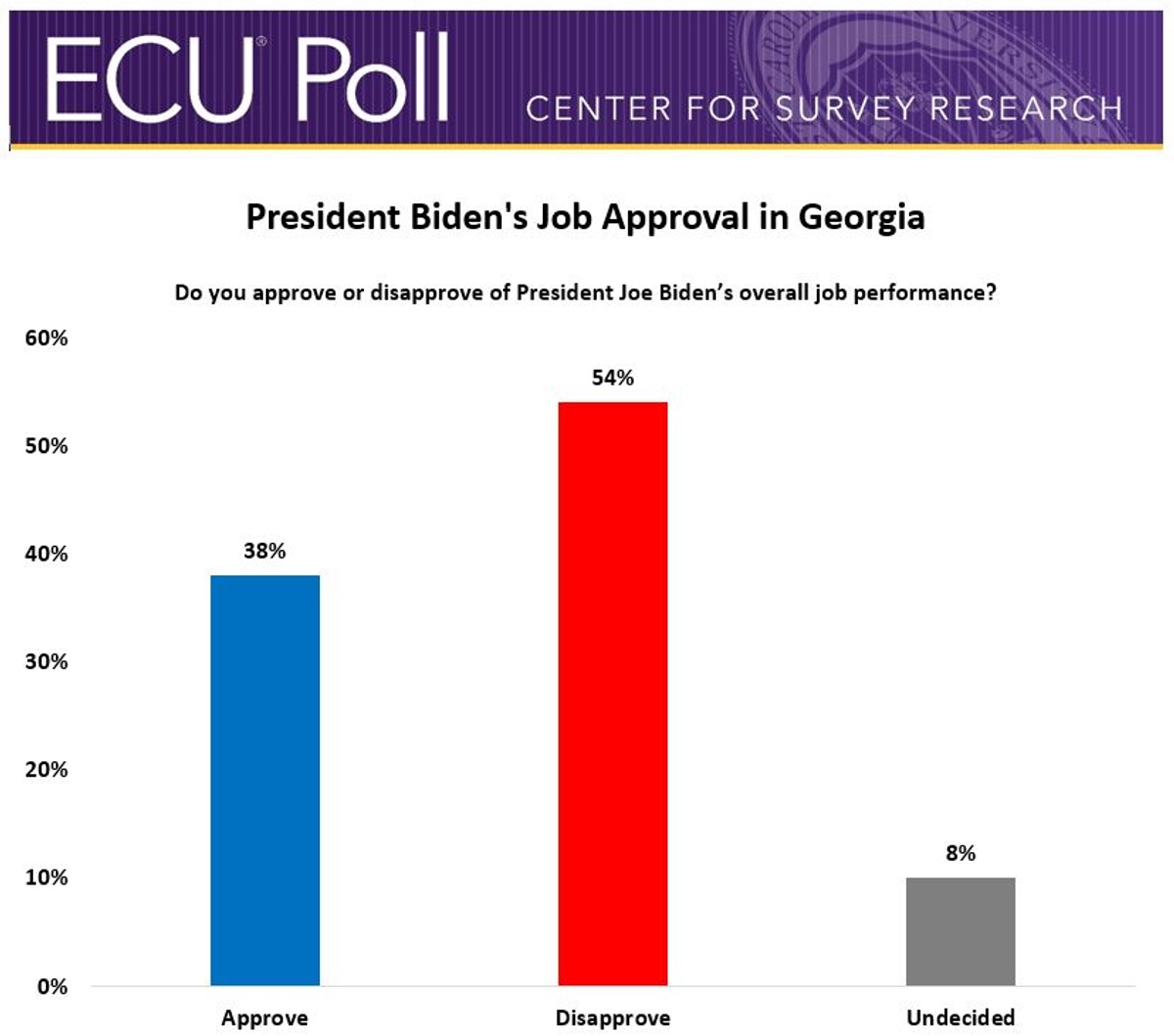A recent ECU Poll of the 2022 U.S. Senate election in Georgia shows Democrat Raphael Warnock and Republican challenger Herschel Walker tied at 46% among registered voters. In the race for Governor of Georgia, Republican Brian Kemp leads Democrat Stacey Abrams 50% to 45%. (The poll was conducted June 6-9, 2022, among 868 registered voters in Georgia, with a Credibility Interval, similar to a poll’s margin of error of ±3.9 percentage points.)


The results of the poll reveal significant divisions between white and black voters. Warnock leads Walker 83% to 7% among black voters; however, among white voters, Walker leads Warnock 65% to 29%. In the race for governor, Abrams leads Kemp 86% to 9% among black voters, whereas Kemp leads Abrams 70% to 27% among white voters.
Both Abrams and Warnock run strongest among black women, with Warnock ahead of Walker 91% to 3% and Abrams ahead of Kemp 93% to 3%. Warnock and Abrams also lead among black men, with Warnock holding a 74% to 11% advantage over Walker, and Abrams holding a 77% to 16% advantage over Kemp. By comparison, Walker and Kemp draw support from white men and white women by considerable margins. Walker leads Warnock 69% to 25% among white men and 61% to 33% among white women, whereas Kemp leads Abrams 73% to 22% among white men and 67% to 31% among white women.
Among respondents with a four-year college degree or higher, Warnock has an advantage over Walker, 50% to 42%, but Walker is ahead 48% to 43% among those without a college degree. Abrams holds a slight edge over Kemp among those with a college degree, 50% to 47%, while Kemp has a solid eleven point advantage over Abrams, 53% to 42%, among those without a college degree.
The results from the poll also show significant divisions based on age. Among registered voters 65 years old and over, Walker holds a significant advantage, 61% to 37%. Among those 40 to 64 years old, Walker’s advantage slips to 2 points (48% to 46%), while Warnock holds the lead with registered voters under 40 years old, 51% to 32%. Similarly, Kemp is ahead of Abrams by a large margin among those 65 and older, 63% to 36%. Kemp leads Abrams among those 40 to 64 years old, 53% to 45%, while Abrams has the advantage among voters under 40 years old, 51% to 39%.
Approval for President Joe Biden’s job performance in Georgia stands at 38%, with 54% expressing disapproval. Among those who approve of Biden’s job performance, 94% support Warnock and 90% support Abrams. Of those who disapprove of Biden’s job performance, 81% support Walker and 87% support Kemp.

When asked how they would vote if the 2024 presidential election were held today, and the candidates were Joe Biden and Donald Trump, 40% of Georgia voters say they would cast their ballot for Biden and 47% say they would vote for Trump. Only 3% of registered voters who disapprove of Biden’s job performance would vote for Biden over Trump. Likewise, Trump wins the support of 82% of those who disapprove of Biden’s job performance.
Taken together, Peter Francia, Director of the Center for Survey Research and professor of political science at East Carolina University, says that the results of the poll suggest that Georgia will be a battleground state again with an exceptionally close Senate race that will attract national attention. According to Francia, “The Senate race in Georgia looks to be one of the most competitive in the nation. For Democrats to have any realistic chance to continue to control the U.S. Senate, the party needs a Warnock victory. For that reason, the nation’s eyes will be on Georgia in the 2022 election.”
Methodology
This poll was conducted on June 6-9, 2022. The sample consisted of 868 registered voters in Georgia, with a Credibility Interval (CI), similar to a poll’s margin of error (MOE) of ±3.9 percentage points. It is important to remember that subsets based on gender, race, education, and age have higher margins of error, as the sample size is reduced. To ensure the sample was representative of the midterm electorate, the data were weighted by gender, age, education, race, region, and election modeling based on previous statewide elections in Georgia. Data were collected using a cell phone sample of SMS-to-web (n=356), Interactive Voice Response (IVR) system of landlines only (n=202) and an online panel provided by Lucid and Bovitz (n=310).



